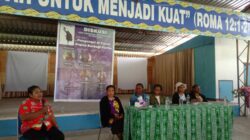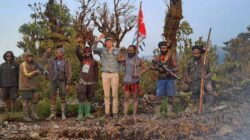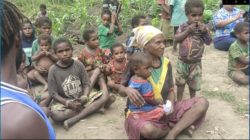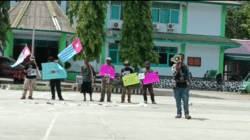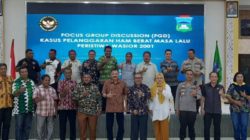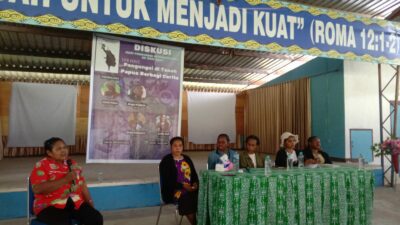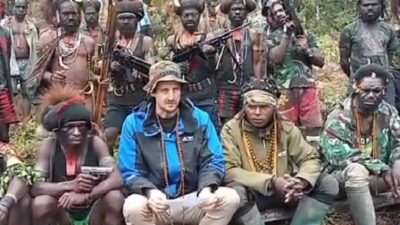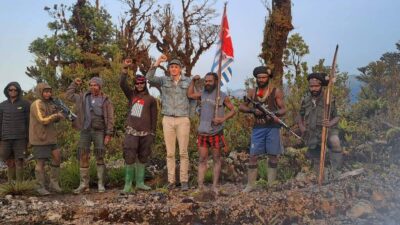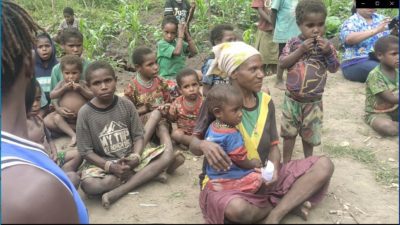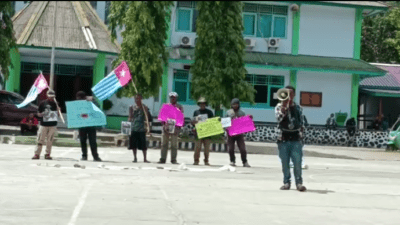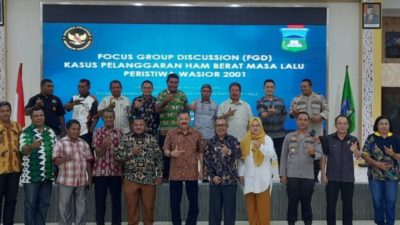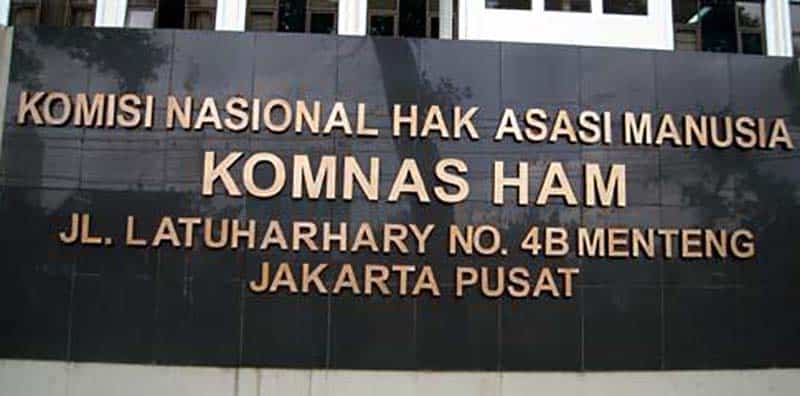
Makassar, Jubi – A survivor of the Biak Massacre Tineke Rumkabu warned security forces to not preventing people sprinkle flower petals at around the water tower in Biak, Papua, she told in an online forum organised by the Law School of UPNVJ on Monday (6/7/2020).
According to her, she and some friends and relatives came to the water tower to sprinkle flower petals and pray for the victims of the Biak Massacre on Monday morning (6/7/2020). However, the movement to commemorate the twenty-two years of the tragedy got attention from the security forces who were on the scene.
“I told them that I will continue to sprinkle the flower petals because they (victims) have no grave. If you tell me where their graves are, I will go there and not come here anymore [to pray and sprinkle flower petals],” said Rumkabu.
The security forces once tried to stop them. “They followed us to the scene (water tower) and told me that we did not have a permit. But at around 11 a.m. [Papua time], I entered the area of the water tower and put a flower bouquet there. I don’t care whatever the risk I would face. I would never be scared. It is the place where my friends, elders, and relatives got murdered while nobody knows their graves,” she said.
About the tragedy, she emphasised that the state must take responsibility for both victims and their families. “Maybe the violence and injustice will end if Papua gets freedom. If we are parts of this country, we should be guarded and protected instead of massacred,” she said.
The Biak Massacre that occurred on 6 July 1998 is a dark story in Papuan history. The tragedy began with a peaceful protest for a referendum and a raising of the Morning Star flag under the water tower in Biak since 2 July 1998 but ended with a series of arrests, tortures, shots, rapes and other violence on the fourth day.
A few years ago, Elsham Papua published their result of investigation under the title “Pusara Tanpa Nama, Nama Tanpa Pusara (Grave without Name, Name without Grave)”. The report listed eight people died, three were missing, four seriously injured while 33 lightly wounded, and 150 were arrested and tortured, and 32 corpses found floating in the Biak waters.
An Indonesian human rights commissioner Beka Ulung Hapsara in the similar discussion forum told that the National Human Rights Commission (Komnas HAM) already submitted their result of the investigation to the authority, but has not yet received any response.
“The Biak Massacre is a human tragedy that must be taken seriously. An initial investigation of Komnas HAM (a few years ago) found some indicators of human rights violations in the tragedy such as torture and so on,” said Beka.
Therefore, he said, the investigation team of Komnas HAM came to Papua several times to investigate this case, and in 2010 recommended Article 26/2000 about the severe human rights violation should apply to analyse the Biak Massacre. However, there was no follow up until the assignment of new commissioners.
Some activists joined the “Papua Itu Kita” movement attempting to bring up the settlement of the Biak Massacre. On 26 February 2015, they came to the Komnas HAM office and urged the human rights commissioners to follow up their investigation.
“Regarding the Biak case, I will try to bring up this issue in the plenary meeting, and discuss it with other colleagues to find a fair and dignified solution for the victims and their families,” said Beka. (*)
Reporter: Arjuna Pademme
Editor: Pipit Maizier


